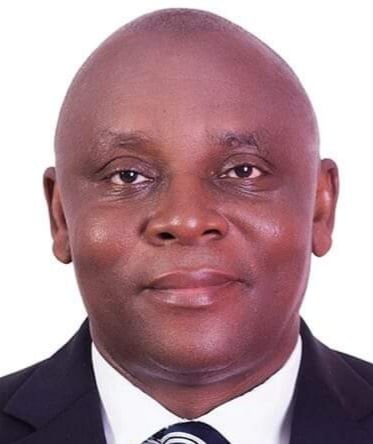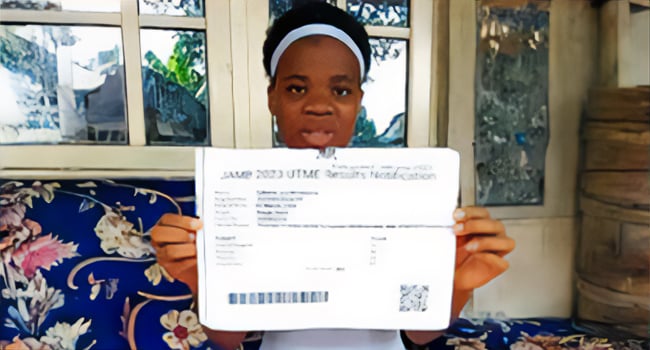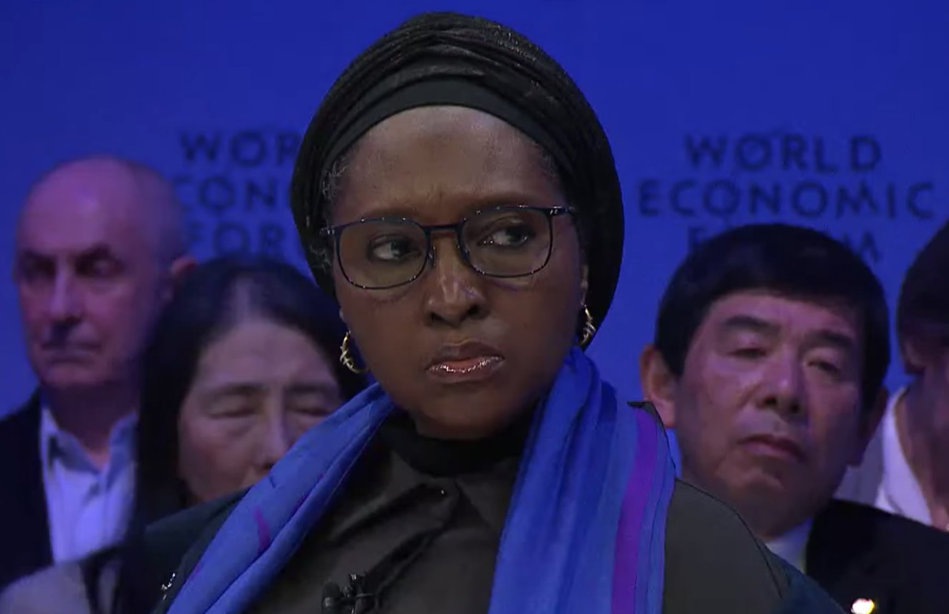By all means, she’s not the only child that has cheated or told a lie, but Mmesoma Ejikeme, the 19-year-old girl from Anambra state who fraudulently changed her UTME score from 249 to 362, and later claimed that she is ‘’not capable of committing such a fraud’’, has gripped national attention and provided us with another opportunity to take another look at the problem of cybercrime.
She beguiled many with her innocence, coherence and articulate responses to questions on TV. The fact that she attended a public school and scored so high added to the enigma and enchanted the nation. A people that wallows in misery will quickly lap up whatever appears enchanting. But I wasn’t convinced. After listening to JAMB, the examination body, it was clear to me that the young girl was misguided.
It is just as well that she’s come around to accept that her correct score is 249, and not 362. I am sure many Nigerians are now relieved to hear that there’s actually an app with which to fabricate UTME scores, and this might be what Ejikeme used to conjure her unbelievably impressive score. She’s therefore not as innocent as she appears.
Ejikeme has humiliated herself and her family and embarrassed a good number of people, including Charles Soludo; the commissioner of education in Anambra state and Innocent Chukwuma, the chairman of Innoson Motors, who had awarded her a N3 million scholarship and many others who rallied around to offer her support, believing that she was only a brilliant poor girl who was being trampled upon by a powerful government agency. Now, JAMB has banned her for three years from taking its exam. That’s quite draconian. In addition, I ask the Anambra state government to provide counselling for her and get her rehabilitated.
Advertisement
But what lessons can we all learn from this episode?
The number one lesson is in child psychology. It is important to understand that young kids could easily be misguided, misdirected, manipulated and deceived by their peers or adults who are out to take advantage of their innocence. This is why this case must be thoroughly investigated so that we get to the bottom of everything. She and her family must cooperate fully with the authorities. It is all the more worrisome that the fraud app was developed by a university undergraduate, according to JAMB.
This lends credence to the story that many cyber criminals we have around are students. Early this week, I wrote an article on the problems of cybercrime in the banking industry. Ejikeme’s saga is therefore a wake-up call on how destructive and pervasive this cybercrime is. Parents, therefore, have the added duty to watch out for their children and pay special attention to what they are up to. Children naturally have a strong urge to perform well and impress their parents and peers, some to the extent of engaging in cheating or dishonest acts.
Advertisement
Some kids believe that they can only earn the respect and validation of their parents if they register the highest scores in exams; and so, they easily get deceived into fraud and cheating. Parents should avoid talking down or denigrating their children. Rather, we should build their self-confidence by continuously encouraging them to work hard and stay honest. Praising a child for the little achievements they record and encouraging them to put in more effort boosts their self-esteem and helps to keep them on the right path.
Number Two is the urge for quick solutions. Many Nigerians will easily jump at any offer that promises quick fixes to their problems, irrespective of the risks or potential crime that may be involved. A Nigerian will most likely accept an offer to buy a fake visa from an agent or a syndicate; buy exam papers; cheat in exams; steal from the government or change their test results as in this case. Almost everybody is on the lookout for a ‘miracle’ – that moment of sudden and unexpected breakthrough, fortune or prosperity.
With such a mindset, they fall prey easily to many fraudulent schemes. We all want to win without making the sacrifice, incurring the costs and doing the hard work. Worst of all, our kids have learned bad habits from the rest of us, especially the politicians. The idea that cutting corners pays better than hard work is the reason kids spend more hours trying to hack the computer network of banks. Some years ago, I asked a friend’s son who was just getting into college, ‘’so, what would you want to do after school’’? ‘’Politics, uncle,” he cut in sharply, and added matter-of-factly, ‘’look at how rich these politicians are’’. Miss Ejikeme may have thought that fabricating her scores was the shortest way to win a scholarship and attain fame. I hope she’s wiser now.
The third lesson to learn is the effect of destructive rivalry. Anambra state, in particular, is the home of intense competition for wealth, fame, popularity and success. Such intense rivalry is driven by boiling-point envy. Adults constantly boast about their wealth while the young ones from underprivileged homes like Ejikeme are constantly the butt of jokes and taunts from their peers. Age-grade societies and town unions offer veritable platforms for members to compare and contrast themselves with each other’s socioeconomic stations.
Advertisement
I actually admire the industry and hard work of our brethren from the east. Their dogged determination to prevail, no matter the hurdles, is the most critical success factor they have. It is also the reason there is so much intense competition among them and part of the reasons others loathe them. Remember how Prof. Soludo spoke disdainfully about Peter Obi’s presidential candidacy last year? That’s what I’m talking about. A bank’s chief executive from Anambra state whom I worked closely with once told me that he couldn’t hire a chauffeur from his state because “as he is driving you around, he would actually be thinking that he should be the one sitting at the back”. It is possible that Ejikeme might have been compelled to change her score just to beat another Anambra kid who was already the highest scorer in the same exam.
Four: The hysterical mob will always be wrong in their assessments. Did anybody notice the frenzy with which many folks from the sout-east rushed to defend the young girl without giving a thought to the explanations given by the examination body? Did you see how JAMB was pilloried and brutally attacked on social media?
Did you observe that, once again, Nigeria became the punching bag for all those who espouse Igbo exceptionalism? They just could not contemplate the possibility of the young girl lying. The danger of a single story was obvious. But from experience over the years, I have learned not to follow the crowd. They’re always too emotional, emotive and full of conspiracy theories.
Advertisement
Views expressed by contributors are strictly personal and not of TheCable.
Add a comment







